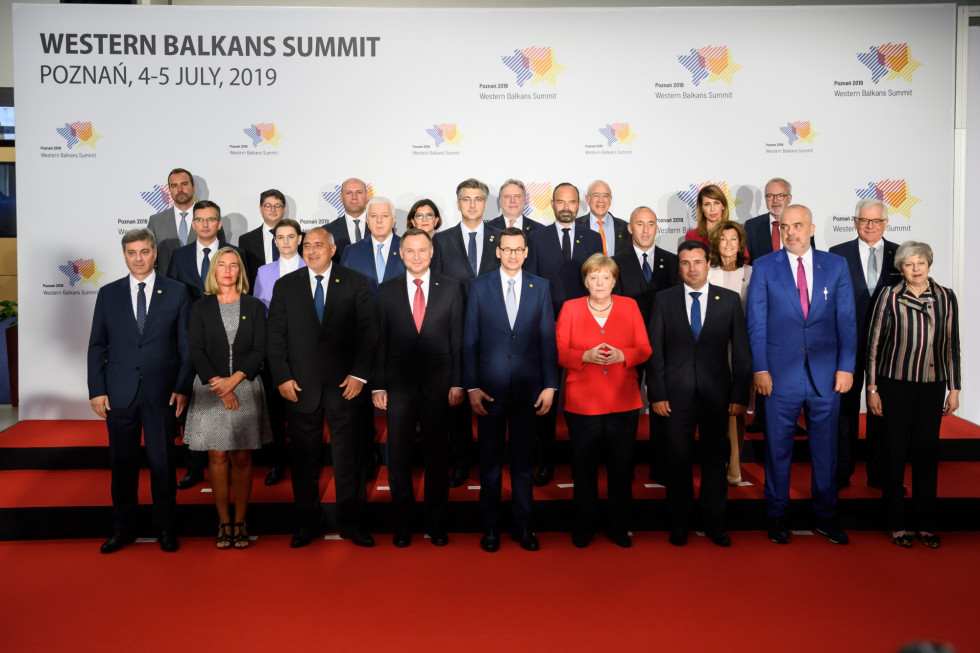Prime minister Šarec stresses the importance of EU expansion in strengthening the foundations for economic growth in the Western Balkans
- Former Prime Minister Marjan Šarec (2018 - 2020)

Slovenian prime minister Marjan Šarec has taken part in the 6th summit of the heads of government of the countries of the Berlin Process in Poznań. | Author Nebojša Tejić, STA
At the plenary session of heads of government, which focused on the importance of reform to the strengthening of enterprise, innovation and competitiveness in the Western Balkans, Mr Šarec stressed that the political decisions of the European Union had a direct effect on the economic development of the region.
He expressed his regret that the decision on starting accession negotiations with North Macedonia and Albania had been postponed once again. In his opinion, this fact had “wider ramifications and, without a more decisive step forward, could also have longer-term consequences.” He sincerely hoped that the appropriate strategic decisions would be taken in the autumn, not only for the countries of the Western Balkans but for the whole of the continent of Europe.
He emphasised that we needed strategic decision-making and bold ambitions now more than ever. “If we take the wind out of the sails of the expansion process, this will make it harder to build firm foundations for economic growth in the region,” he added. He called for positive pressure to be put on the countries in the region by EU Member States. He also pointed to the importance of the principle of a state governed by the rule of law, which was a precondition for social and economic progress.
The prime minister also used his speech to outline the achievements that had so far been made by the Berlin Process in a number of areas. He pointed out that the Slovenian initiative, a Positive Agenda for Young People had, in tandem with other activities such as the German-French initiative for cooperation between young people, paved the way for the opening of the Regional Office for Youth Cooperation.
He praised the continuing successful strengthening of security cooperation between the various agencies, but was forceful in stating that there were still development gaps in the areas of economy, energy and infrastructure.
“If we are truly committed to overcoming these gaps in development between the region and the European Union, the political messages must be aligned with decision-making and economic measures. We also have to promote an agenda of integration as one of the leading initiatives of the Berlin Process.
While the Berlin Process is very much alive and indeed very necessary, it cannot remain alone. The European Union and the Western Balkans have a common goal and vision: that of a strong and strengthening Europe. It is high time that we realised this vision,” concluded Šarec.
On the sidelines of the summit, the prime minister also met the secretary-general of the Organisation for Economic Cooperation and Development (OECD), Ángel Gurría. Both men assessed cooperation so far as excellent and were looking forward to the future.

